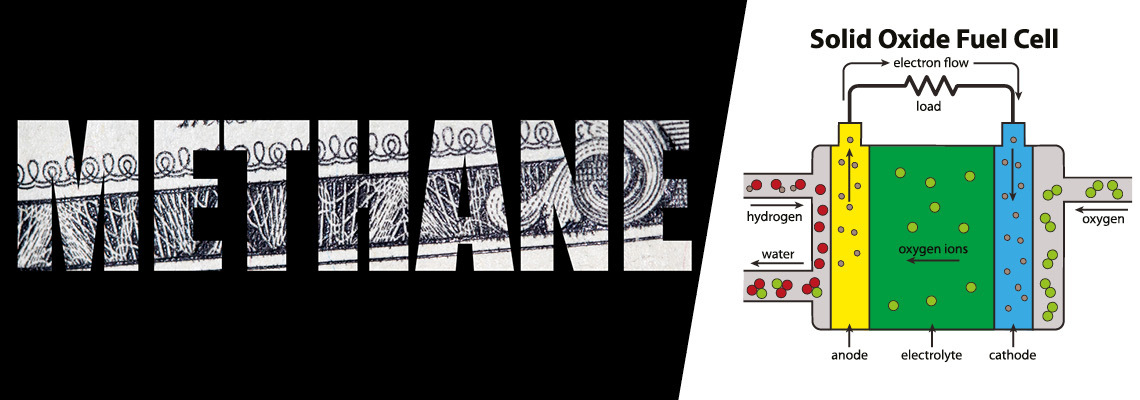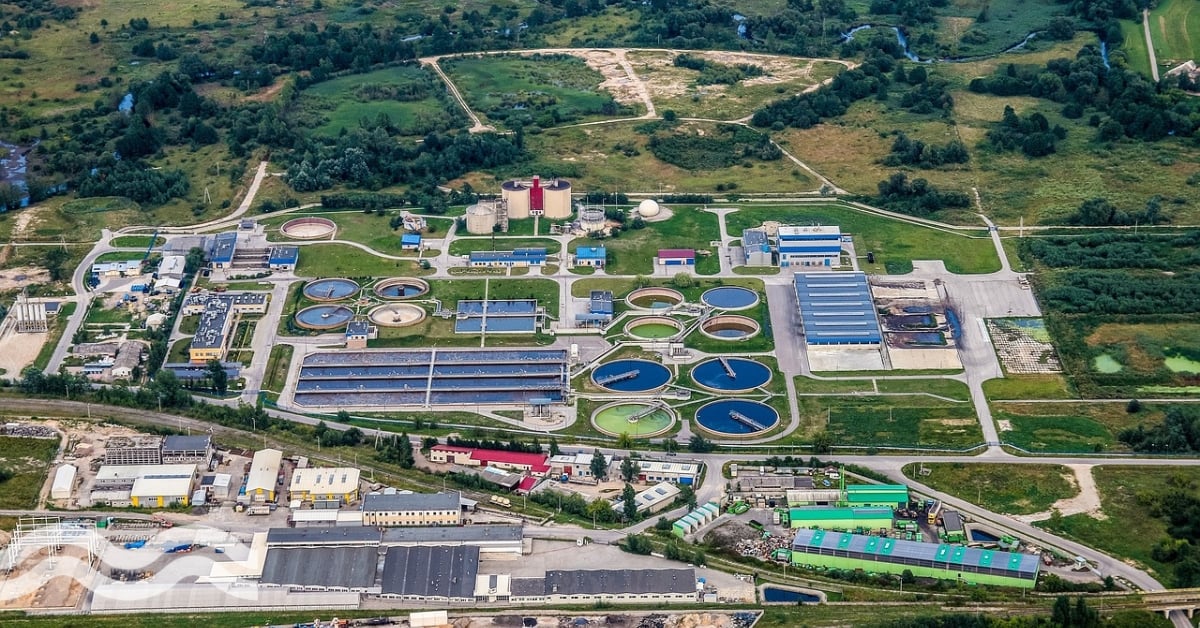Turning to fuel cells to improve water’s environmental impact
Using fuel cells to derive energy from water treatment offers an attractive route to create value. In a new analysis, groundwater used for drinking is treated to remove methane.
Turning to energy technology for water treatment
Fuel cell technologies are being explored as one way to improve the sustainability of groundwater abstraction and treatment.
Commonly found in groundwater, methane must be removed as part of the treatment processes if the water is later being consumed.
While methane derived from wastewater treatment has long been used in internal combustion engines, their relatively poor efficiency when using methane-rich gas has led to the exploration of alternative approaches.
A recent Dutch case study is proving that the extracted methane can instead be considered to power solid oxide fuel cells (SOFC).
A water treatment plant in Spannenburg, the Netherlands recovered groundwater with a methane concentration of 45 mg per L using vacuum towers.
Impregnated activated carbon was used to remove traces of hydrogen sulphide from the recovered gas, while steam reformation was used to strip hydrogen from the methane for use in the electrochemical fuel cell.
“These additional processes make the system less efficient, but the demonstration nonetheless proved the viability of this approach."
Further gas processing, including the cleaning and reforming, is required to operate the solid oxide fuel cell and prevent damage from the sulphur compounds. These additional processes make the system less efficient, but the demonstration nonetheless proved the viability of this approach.
According to this study, the methane recovered at Spannenburg was able to run a 915 kW SOFC system which supplied more than half of the total electrical power demand of the plant. Consequently, overall gas emissions were reduced by 17.6 per cent or around 1794 tons of CO2.
A significant greenhouse gas
Typically derived from bacteria and the decomposition of organic material or natural gas deposits, methane is also a significant greenhouse gas.
Once removed from the water, subsequent disposal by simply venting to atmosphere or flaring can mean water treatment processes may become a bigger contributor to global warming.
Although groundwater methane contributes only 0.05 per cent to total UK methane emissions, according to British Geological Survey figures, all sources of greenhouse gas emissions must be addressed if catastrophic global warming is to be avoided.
“Methane derived from wastewater treatment has long been used in internal combustion engines, but their relatively poor efficiency when using methane-rich gas has led to the exploration of alternative approaches."
Deep dive into fuel cell technology
Solid Oxide Fuel Cells are fuel-flexible and can potentially reach electrical efficiencies up to 60 per cent, not far off double that of conventional engines.
There have been other attempts to use methane and other materials from wastewater treatment in fuel cells.
Microbial fuel cells (MFCs), for example, have been reportedly used to treat a range of wastewater contaminants and can produce energy as well as useful chemicals directly from wastewater streams. Based on bacteria, microbial fuel cells can produce an electrical current from organic-rich waste materials such as those found in water treatment plants.
“The global microbial fuel cell market is forecast to reach $19.5 million by 2026.”
According to a Reports and Data analysis, the global microbial fuel cell market is forecast to reach $19.5 million by 2026, largely on the back of demand for clean water. Although this is a modest global figure, there is significant potential for fuel cell technologies to impact on the water treatment sector.
A huge opportunity
“The efficient and clean electrochemical processes found within fuel cells represent a huge opportunity to improve the sustainability in the wastewater treatment sector by more effective use of the raw materials found in water,” explains Dr Michaela Kendall, chief executive of UK-based fuel cell company, Adelan.
Speaking to Aquatech Online, she said: “These processes not only support improved water quality but can harness the treatment process to supply clean energy and potentially valuable resources too.
Adelan’s fuel microtubular solid oxide cells are also able to operate on raw wastewater streams without the need for external steam reformation.
“With new fuel cell technologies emerging and production volumes surging, all forecasts suggest that rapid reductions in fuel cell prices are on the cards, making this technology the obvious choice for energy recovery in water treatment processes,” she concludes.
It's early days in the adoption of fuel cell technology in water treatment processes, but there is a growing body of evidence emerging on their considerable benefits.
Widespread adoption could make the sector more environmentally friendly while simultaneously improving the economics of water treatment.
Related content
Share your water technology stories with us
Do you have an innovation, research results or an other interesting topic you would like to share with the international water technology industry? The Aquatech website and social media channels are a great platform to showcase your stories!
Please contact our Sr Brand Marketing Manager Annelie Koomen.
Are you an Aquatech exhibitor?
Make sure you add your latest press releases to your Company Profile in the Exhibitor Portal for free exposure.
We promise never to send you spam and you can unsubscribe at any time!



